What Leaves Should You Not Compost? A Comprehensive Guide to Safe Composting Practices
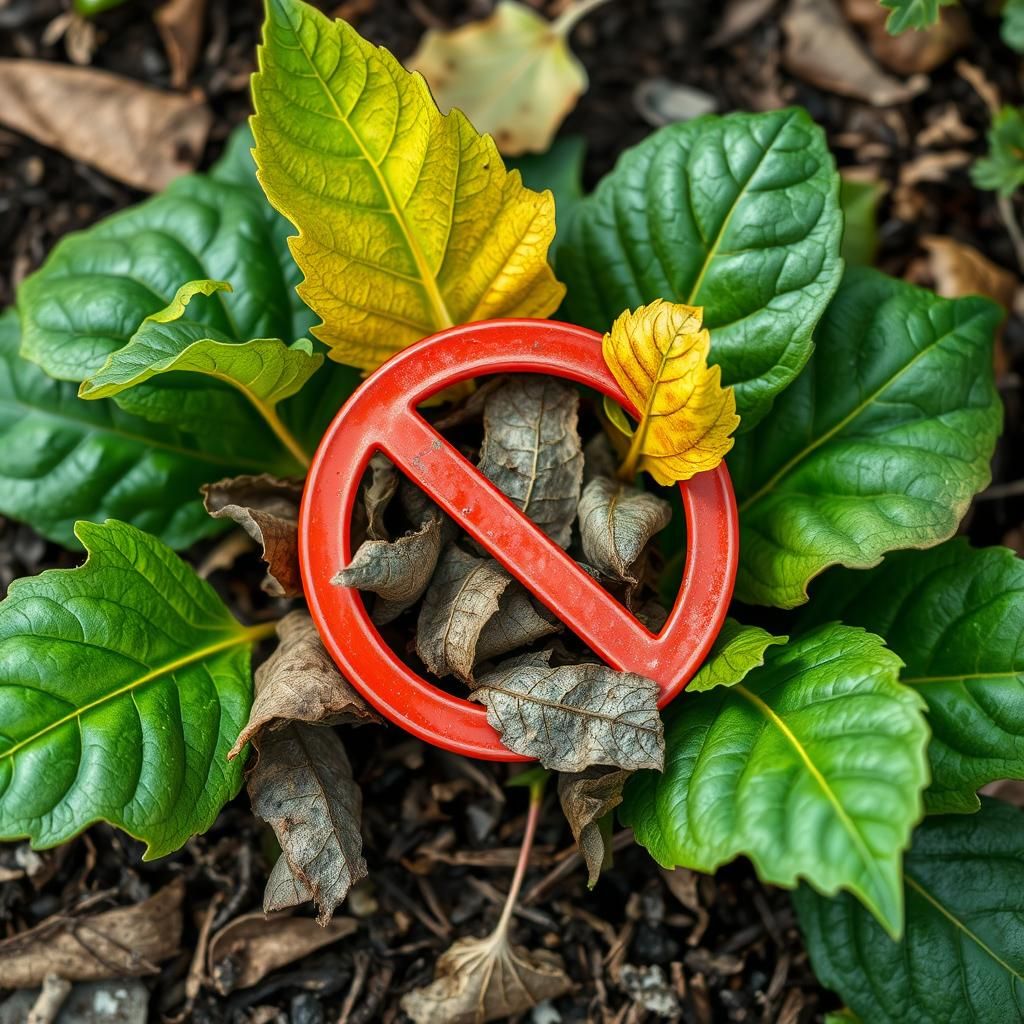
Composting is an eco-friendly practice that transforms organic waste into nutrient-rich soil, but not all leaves are suitable for this process. Understanding which leaves to avoid is crucial for maintaining a healthy compost pile. Some leaves can introduce toxins, attract pests, or disrupt the balance of microbes essential for decomposition. This comprehensive guide aims to provide clarity on the leaves that should be excluded from your compost bin, helping you make informed choices for safe composting. By following these guidelines, you can ensure your composting efforts contribute positively to your garden and the environment.
What Leaves Should You Not Compost?
When composting, it’s essential to know which leaves to avoid as they can introduce harmful chemicals or pests to your compost pile. Leaves that are coated with pesticides or herbicides, such as those from non-organic gardens, should not be composted because they can contaminate the final compost product. Moreover, leaves from diseased plants can carry pathogens that may survive the composting process, potentially affecting future plant growth. Additionally, oak leaves take a long time to decompose due to their high tannin content, which can lead to imbalances in the compost. Finally, it's best to avoid evergreen leaves, particularly those from pine trees, which can create an acidic environment and hinder the breakdown of organic matter.
1. Leaves Treated with Pesticides
Leaves that have been treated with pesticides or chemicals should never be added to your compost. These chemicals can persist in the compost and affect the health of your garden in the future. Contaminated compost can harm the soil microbiome and potentially poison plants, making it essential to either dispose of these leaves in the trash or follow local disposal regulations.
2. Diseased Leaves
Adding leaves from diseased plants to your compost can introduce pathogens that may survive the high temperatures typically achieved during composting. These diseases can spread to healthy plants when you use the compost, resulting in reduced crop yields or plant death. It's vital to identify any signs of disease before composting leaves to protect your garden's health.
3. Oak Leaves
While oak leaves are abundant and free, they are known for their high tannin levels, which slow down the decomposition process. This prolonged breakdown can make them unsuitable for compost, particularly if you need finished compost within a short timeframe. If you choose to add oak leaves, consider shredding them first to accelerate their decomposition.
4. Evergreen Leaves
Evergreen leaves, especially from coniferous trees such as pines or firs, should be avoided in compost due to their high acidic content. This acidity can inhibit the breakdown of other organic materials and create imbalances within the compost. It’s often better to use these leaves as mulch rather than compost.
5. Leaves from Plants High in Toxins
Certain plants, such as black walnut, produce juglone, a toxic substance that can harm other plants. Composting leaves from such plants may transmit these harmful chemicals into your compost, affecting the viability of subsequent plants grown in that soil. It's wise to research any plants in your garden that may have toxic compounds and avoid composting their leaves.
| Leaf Type | Reason to Avoid |
|---|---|
| Pesticide-treated Leaves | Possible chemical contamination |
| Diseased Leaves | Pathogens may affect healthy plants |
| Oak Leaves | Slow decomposition due to tannins |
| Evergreen Leaves | High acidity can hinder composting |
| Toxic Plant Leaves | May contain harmful substances |
What leaves to avoid in compost?
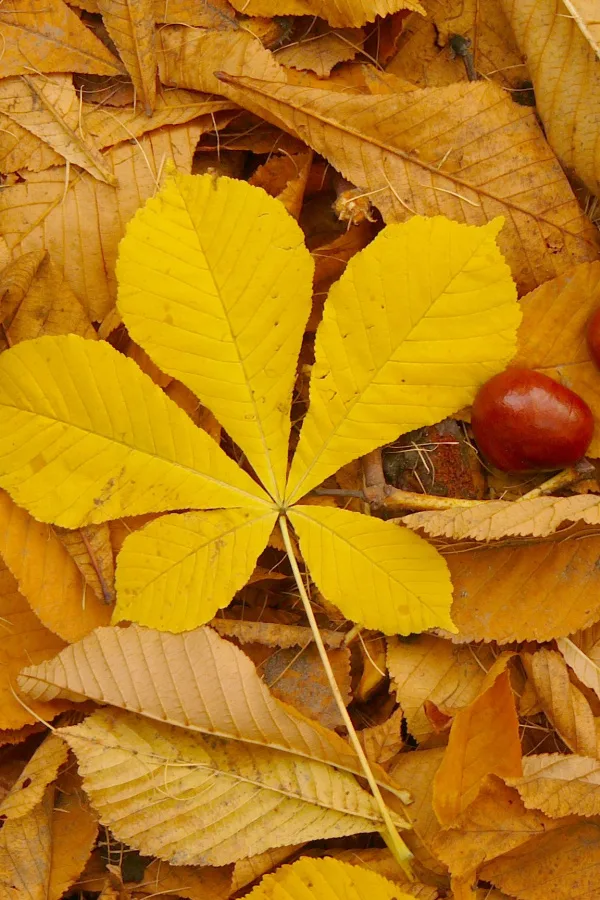
When creating compost, it's essential to know which materials are best suited for the composting process. Certain leaves can introduce issues that may hinder the effectiveness of compost or, in some cases, lead to negative outcomes. Below is a detailed examination of leaves to avoid in compost.
Leaves from Toxic Plants
Leaves from certain plants contain toxins that can be harmful to the composting microorganisms and, ultimately, to your garden. It's crucial to avoid these leaves to maintain a healthy compost ecosystem.
- Oleander: Contains toxic compounds that can poison soil and plants.
- Poison Ivy: Causes skin irritation and may contaminate the compost.
- Black Walnut: Its leaves release juglone, a compound that can inhibit the growth of other plants.
Leaves that are Highly Acidic
Some leaves can significantly increase the acidity of your compost, which may not be suitable for all plants. Maintaining a balanced pH level is essential for effective decomposition and nutrient availability.
- Pine Needles: While they can be composted in moderation, too many can lower the pH excessively.
- Acidic Oak Leaves: They can take a long time to break down and may overwhelm the compost with acidity.
- Spruce and Fir: Similar to pine needles, their acidity can be detrimental if used excessively.
Leaves that Are Difficult to Decompose
Some leaves have tough structures that make them slow to break down, which can lead to an ineffective compost pile. It's essential to avoid or properly manage these types of leaves.
- Eucalyptus Leaves: High oil content makes them resistant to decomposition.
- Maple Leaves: Though they are often used, they can mat together, preventing airflow in the compost.
- Magnolia Leaves: Thick and waxy, they take a longer time to decompose compared to other leaves.
Leaves Infested with Pests or Diseases
Using leaves that are infected with pests or diseases can introduce problems into your compost and garden. It's crucial to inspect leaves thoroughly before adding them to your compost pile.
- Rust-infected Leaves: Can spread fungal diseases to other plants.
- Infested Leaves: Leaves covered in bugs or larvae can introduce those pests into your compost.
- Diseased Vegetation: Leaves from sick plants can transfer pathogens and create a problematic compost environment.
Leaves that Are Treated with Chemicals
Leaves from plants that have been treated with pesticides, herbicides, or other chemicals can harm your compost and garden. It's essential to avoid these leaves to maintain an organic compost mix.
See also: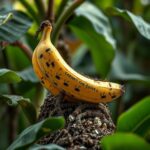
- Commercially Grown Leaves: Often treated with various chemicals that can remain in the plant material.
- Ornamental Plants: Many are treated with chemicals that are unsafe for compost.
- Leaves from Lawns with Herbicides: Can introduce harmful substances into your compost.
Can all leaves be composted?

Certainly! Here’s a detailed response regarding whether all leaves can be composted, along with relevant subtitles in HTML format:
Can All Leaves Be Composted?
When it comes to composting, leaves are an excellent source of organic material. However, not all leaves are ideal for composting. While most leaves can be composted, some may require special consideration due to their effects on decomposition and soil health.
Factors to Consider:
1. Type of Leaves: Some leaves contain high levels of tannins or other compounds that can inhibit decomposition.
2. Pesticide Use: Leaves from plants treated with herbicides or pesticides may not be suitable for composting due to chemical residues.
3. Disease Presence: Leaves infected with fungal diseases or pests can introduce harmful pathogens to your compost.
4. Dryness and Thickness: Certain leaves, particularly those that are thick or waxy, may take longer to break down.
5. C:N Ratio: The carbon-to-nitrogen (C:N) ratio of the compost may be affected by the type of leaves added, impacting the composting process.
Types of Leaves Suitable for Composting
Most common garden leaves can be composted effectively. Leaves from deciduous trees like oaks, maples, and poplars are generally safe to add to your compost pile.
- Maple Leaves: Break down easily and are rich in nutrients.
- Oak Leaves: Although they decompose slowly, they add substantial carbon.
- Pine Needles: Acidic but can be composted in moderation.
Leaves to Avoid in Composting
Certain leaves should be avoided for composting due to potential negative effects on your compost pile or garden.
- Black Walnut: Contains compounds that inhibit plant growth.
- Cherry Leaves: May be toxic to some soil organisms.
- Evergreen Leaves: High resin content can slow down decomposition.
Effects of Pesticides and Herbicides
Leaves from plants that have been treated with pesticides or herbicides may pose a risk when composted. These chemicals can remain active in the compost, potentially harming beneficial microorganisms and plants in your garden.
- Risk of Contamination: Chemical residues can persist and enter the soil ecosystem.
- Impact on Soil Health: May disrupt the beneficial microbial populations.
- Negative Effect on Plants: Has the potential to harm plants grown in treated soil.
Maintaining the Right C:N Ratio
To achieve optimal composting, it's important to maintain an appropriate carbon-to-nitrogen (C:N) ratio. Leaves primarily add carbon, which is essential for healthy composting, but they need to be balanced with nitrogen sources.
- Composting Greens: Combine leaves with nitrogen-rich materials like grass clippings.
- Layering Strategy: Alternate layers of leaves with kitchen scraps to balance C:N ratio.
- Monitoring Decomposition: Adjust materials as necessary to maintain the right balance.
Best Practices for Composting Leaves
To effectively compost leaves, following best practices can greatly enhance the process and ensure beneficial results.
- Shredding Leaves: Shred leaves to increase surface area and speed up decomposition.
- Moisture Control: Maintain adequate moisture but avoid soaking the compost pile.
- Turning the Pile: Regularly turn the compost to aerate and promote even decomposition.
What leaves are bad for the garden?
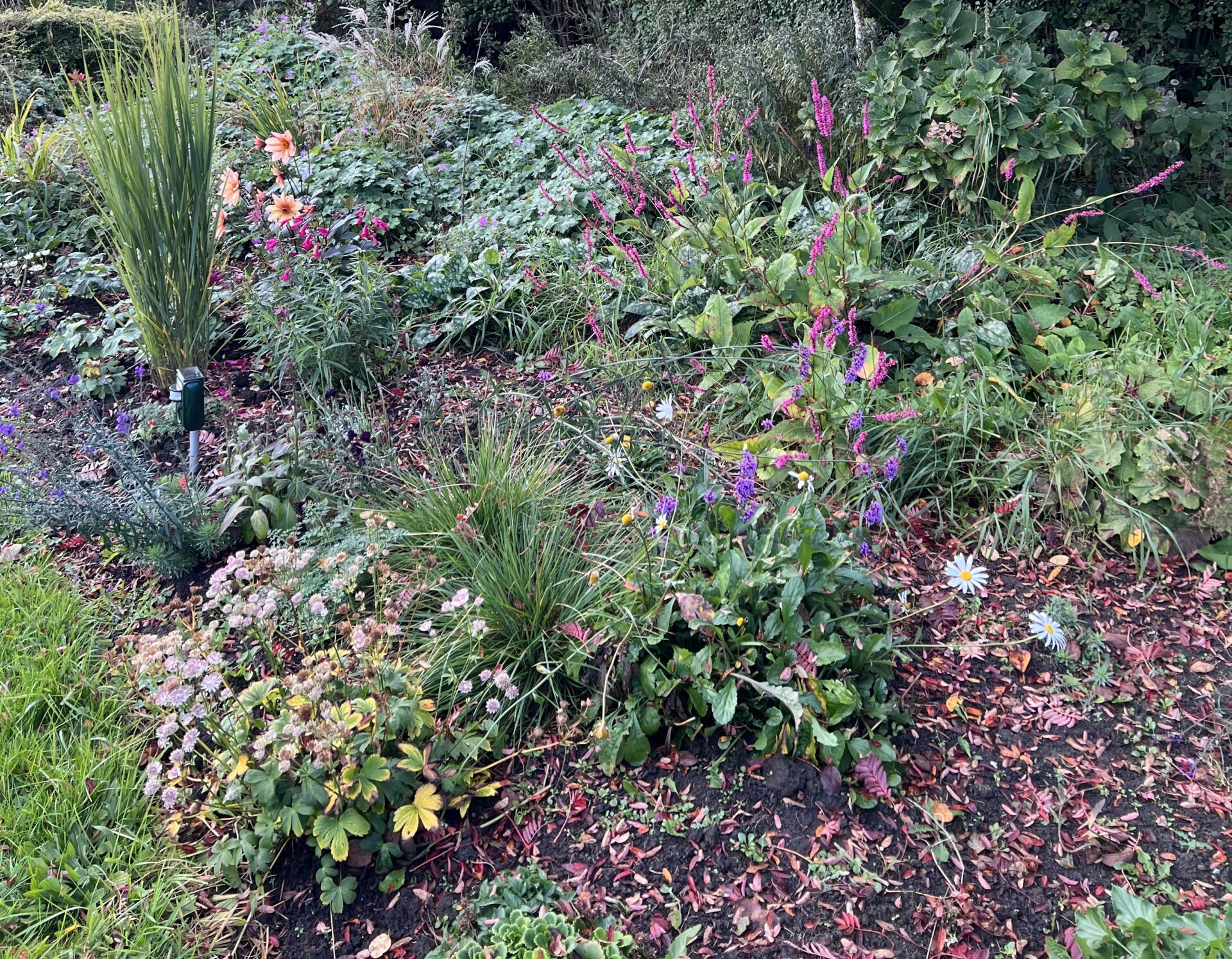
In a garden, not all leaves are beneficial, and some can actually harm the plants. It's important to understand which leaves to avoid, as they can influence soil health, attract pests, or contribute to diseases. Here are some of the leaves that are generally considered bad for the garden:
1. Eucalyptus Leaves
Eucalyptus leaves contain toxic essential oils that can deter beneficial insects and microbes in the soil. When decomposing, they can create a less hospitable environment for other plants. The high tannin content can also inhibit seed germination, making it difficult for new plants to thrive.
- Release toxins that harm soil health.
- Inhibit the growth of surrounding plants.
- Attract specific pests due to their strong scent.
2. Black Walnut Leaves
Black walnut trees produce a chemical called juglone, which is harmful to many garden plants. The leaves, bark, and even the roots can leach this toxin into the soil, leading to stunted growth or even death in sensitive plants.
See also: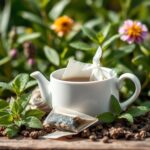
- Contain juglone, which is toxic to many species.
- Can severely reduce biodiversity in your garden.
- May inhibit root development of nearby plants.
3. Oak Leaves
While oak leaves can decompose and offer some nutrients, they are rich in tannins, which can make the soil more acidic. This increased acidity can be detrimental to species that prefer neutral pH levels, hindering their ability to absorb nutrients.
- Contribute to soil acidity, negatively affecting plant health.
- Can promote fungal diseases if not managed properly.
- Take a long time to decompose, potentially leading to a build-up of organic matter.
4. Yew Leaves
Yew leaves contain alkaloids that are toxic to many mammals and can disrupt the health of your garden by affecting pollinators and beneficial insects. Their decomposition can lead to toxic build-up in the soil, impacting neighboring plants.
- Release toxins that can accumulate in the soil.
- Discourage beneficial insects from visiting your garden.
- Can be harmful to pets and wildlife.
5. Corn Leaves
Corn leaves can attract pests like aphids and caterpillars while also serving as a host for various diseases. Their dense structure can create conditions for mold and rot, which can be detrimental in a garden setting.
- Attract harmful pests, causing imbalance in the garden ecosystem.
- Encourage mold and disease proliferation.
- Take nutrients away from the soil during decomposition.
What leaves should I avoid for mulch?

When considering what leaves to use for mulch, it is essential to be cautious about certain types that can be detrimental to your garden. Mulching is a great way to improve soil health, retain moisture, and suppress weeds, but not all leaves are suitable. Here are some leaves you should avoid for mulch:
Leaves from Black Walnut Trees
Black walnut trees produce a chemical called juglone that can inhibit the growth of various plants. This chemical is found in the leaves, husks, and roots of the tree. Using black walnut leaves for mulch can lead to:
- Stunted plant growth
- Yellowing of leaves on sensitive plants
- Overall garden health decline
Leaves from Eucalyptus Trees
Eucalyptus leaves contain essential oils that can be harmful to some garden plants. These oils can deter beneficial insects and may even have an antibacterial effect. Avoid using eucalyptus leaves for mulch because:
- They can lead to poor plant performance
- They may create an unhealthy soil environment
- They can negatively affect the microbial life in the soil
Leaves from Poison Ivy and Other Toxic Plants
Using leaves from toxic plants like poison ivy can be dangerous. Contact with these leaves can lead to skin irritations and allergic reactions. Furthermore, using such leaves for mulch can cause:
- Unwanted spread of allergens in the garden
- Potential contamination of other plants
- Health risks for those handling the mulch
Coniferous Tree Leaves
Leaves from conifer trees, like pine, can be high in acidity, which can alter the pH of the soil. While some gardeners use them responsibly, it’s important to be mindful of where they are used. Issues with conifer leaves as mulch include:
- Possible hindrance to the growth of acid-sensitive plants
- Slower decomposition compared to deciduous leaves
- Potential buildup of needle litter which can be water-repellent
Leaves from Trees with Fungal Issues
Using leaves from trees that are known to have fungal infections can introduce diseases into your garden. If the leaves are diseased, it's best to dispose of them properly rather than using them for mulch. The risks include:
- Spread of diseases to healthy plants
- Creation of an unhealthy growing environment
- Long-term issues with soil health and productivity
Questions from Our Readers
What leaves should you avoid composting?
Some leaves contain toxic compounds or harmful substances that can affect your compost. You should avoid composting leaves from black walnut trees because they release a substance called juglone that can inhibit plant growth. Additionally, leaves from evergreen trees, like pines and firs, can be acidic and may not break down easily.
Why are some leaves considered unsuitable for composting?
Certain leaves are unsuitable for composting due to their chemical properties or the rate at which they decompose. For example, leaves from poison ivy, poison oak, or poison sumac should never be composted, as they can cause skin irritation even after being broken down. Similarly, thicker leaves, such as those from laurel or holly, may take much longer to decompose.
Can you compost leaves from diseased plants?
It's generally not advisable to compost leaves from diseased plants as they can harbor pathogens and pests that may survive the composting process. To prevent spreading diseases in your garden, it's better to dispose of diseased leaves in the trash or through municipal yard waste programs.
Are leaves treated with pesticides safe to compost?
No, leaves that have been treated with pesticides or herbicides should be avoided in composting. These chemicals can persist in the compost and potentially harm beneficial organisms and contaminate your soil. To ensure a safe composting process, it's best to use leaves from organic or untreated sources.
See also:

If you want to read more articles like What Leaves Should You Not Compost? A Comprehensive Guide to Safe Composting Practices, we recommend you check out our Compost category.
Leave a Reply
Related Articles